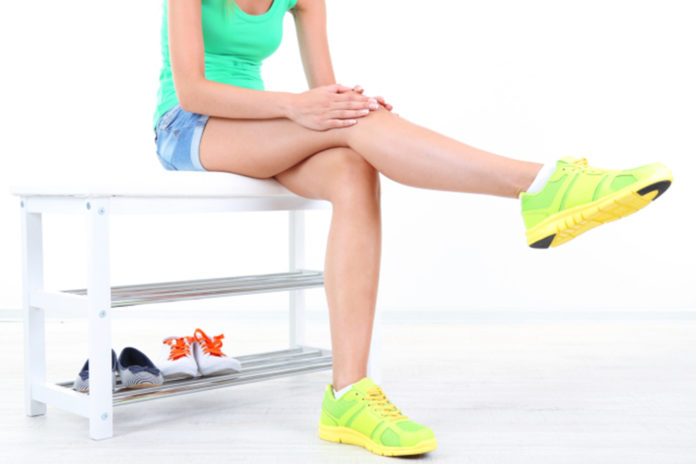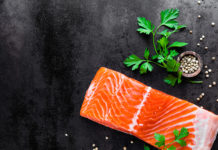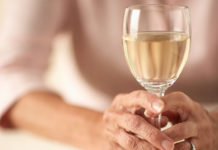
In honour of Osteoporosis Month this November, we’re supporting the cause and looking at the natural approach to managing this condition affecting 1 in 4 Canadian women over 50.
by shawna darou, nd
What is it?
Osteoporosis is a loss of bone density that leads to a susceptibility to fractures. It is important to pay attention to factors that affect bone density at various stages in a woman’s life. For example, almost 85 to 90 percent of adult bone mass is acquired by age 18 in girls, so building strong bones during childhood and adolescence can help to prevent osteoporosis later in life. In addition, women can lose up to 20 percent of their bone mass in the five to seven years after menopause because of lower estrogen levels, making them more susceptible to osteoporosis at this age.
There are several risk factors for developing osteoporosis such as being underweight, having low dietary calcium intake, being inactive, high caffeine intake, low vitamin D stores, family history of osteoporosis or a history of anorexia.
If you have been diagnosed with osteoporosis, or even ‘osteopenia’ (a reduction in bone density, but not as severely as in osteoporosis), take note of more recommendations just for you:
Food Matters
• Increase foods rich in calcium: dairy products, fortified dairy replacements like soy, almond or rice milks, leafy green vegetables, sesame seeds, almonds, sea vegetables, figs, oranges, canned salmon or sardines with bones.
• Alkalinize your body to improve calcium absorption. This is accomplished by increasing vegetable and fruit intake, especially leafy greens, and monitoring meat, sugar, coffee and alcohol intake
Supplements
• Calcium supplements are essential, and are often combined with other nutrients like magnesium, manganese, boron, zinc and copper to support absorption. There are many forms of calcium, and often the citrate or chelate forms are better absorbed than the more common calcium carbonate, which requires more stomach acid for optimal absorption
• Vitamin D requirements in Canada are high due to our latitude and lack of sun exposure for at least half of the year. It is best to have your vitamin D level tested with a simple blood test to find the optimal supplement dosage for you, but in general a 1,000-2,000 IU daily dosage is recommended. (Please note: vitamin D
is a stored vitamin and is toxic in high amounts — do not use more than 2,000 IU daily unless recommended to you by your health practitioner.)
Lifestyle changes: insider info
Regular weight-bearing exercise is essential to keep bones healthy. This can simply be a daily half-hour walk, or more strenuous exercise. Incorporating resistance training like weights will further strengthen your bones. Balance training may be advised in order to prevent falls.
Although we all know this regular exercise is essential to optimal health, some worry exercising with a family history of osteoporosis could be dangerous. The National Osteoporosis Foundation has teamed up with fitness maverick Mirabai Holland to release Skeletal Fitness, an osteoporosis prevention exercise DVD. The program is sure to make a splash, focusing on full body, weight-bearing exercises that target the spine, thighbone at the hip and the forearm at the wrist. “These weight-bearing exercises use one’s own body weight against gravity to create added benefit for bones. The exercises use a towel, hand weights and optional ankle weights, which are great for people just starting out on an exercise program. It is an affordable program because there is no gym to join and you can get started right away,” notes Holland. Over time, bones become stronger and denser when demands are placed on them, and a lack of exercise, as we get older, may contribute to lower bone mass or density. Weight-bearing exercises like jogging, stair climbing and dancing have also been shown to be super effective.
Grow Forward
With the above, there are also some additional quick tips to help prevent osteoporosis that can easily be incorporated into a busy lifestyle are. Firstly, ensure that you have sufficient calcium intake from your diet, and if it is not at least 1,000mg daily to take a calcium supplement. Secondly, try not to take your calcium supplements at the same time as coffee, since caffeine can affect calcium absorption. And last, but not least, exercise regularly!
References
Kaur SD, Danylak-Arhanic M, Dean, C. The Complete Medicine Guide to Women’s Health. Toronto, ON: Robert Rose Inc, 2005.
Hudson, Tori. Women’s Encyclopedia of Natural Medicine. New York, NY: McGraw-Hill, 2008.













